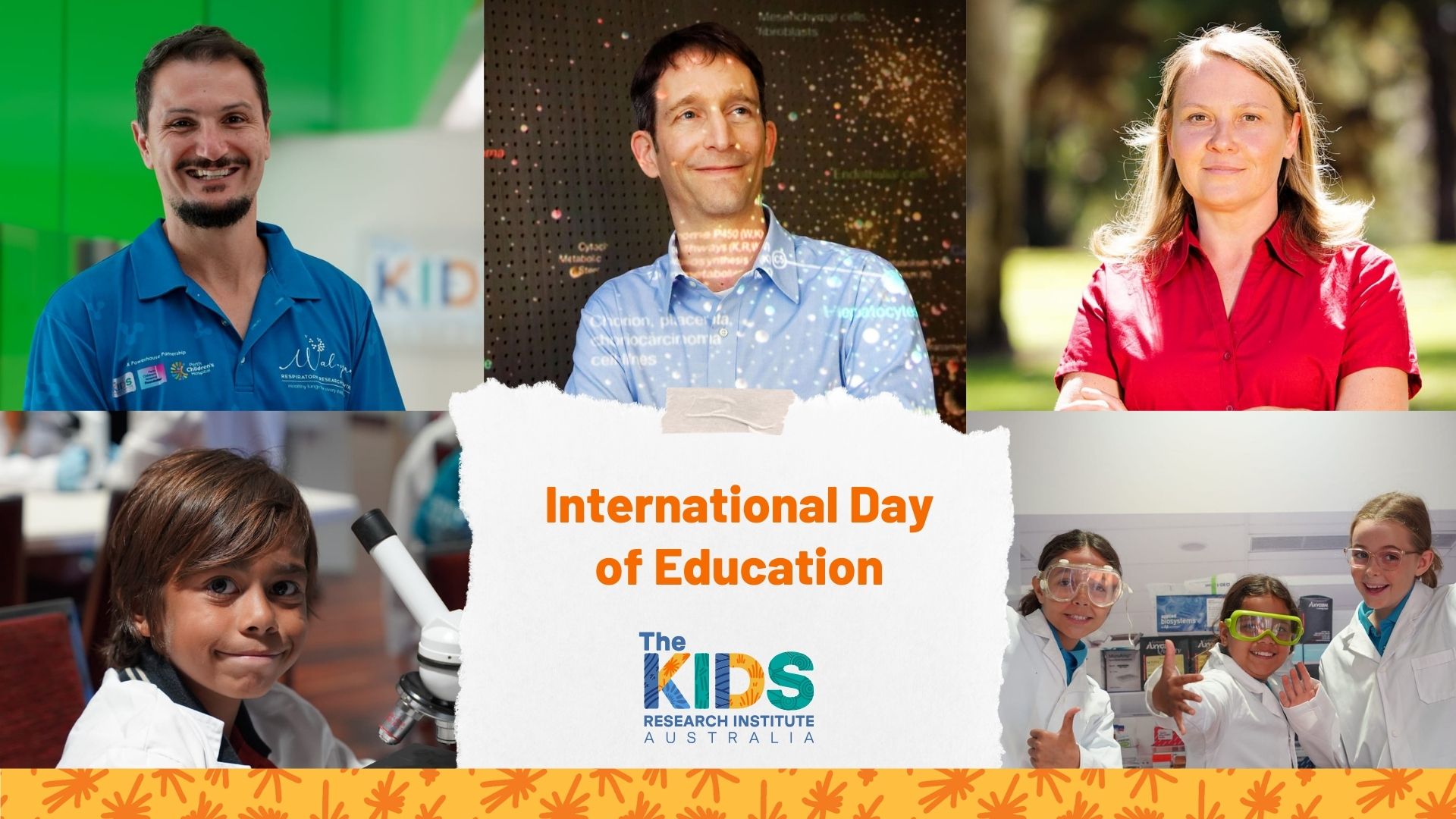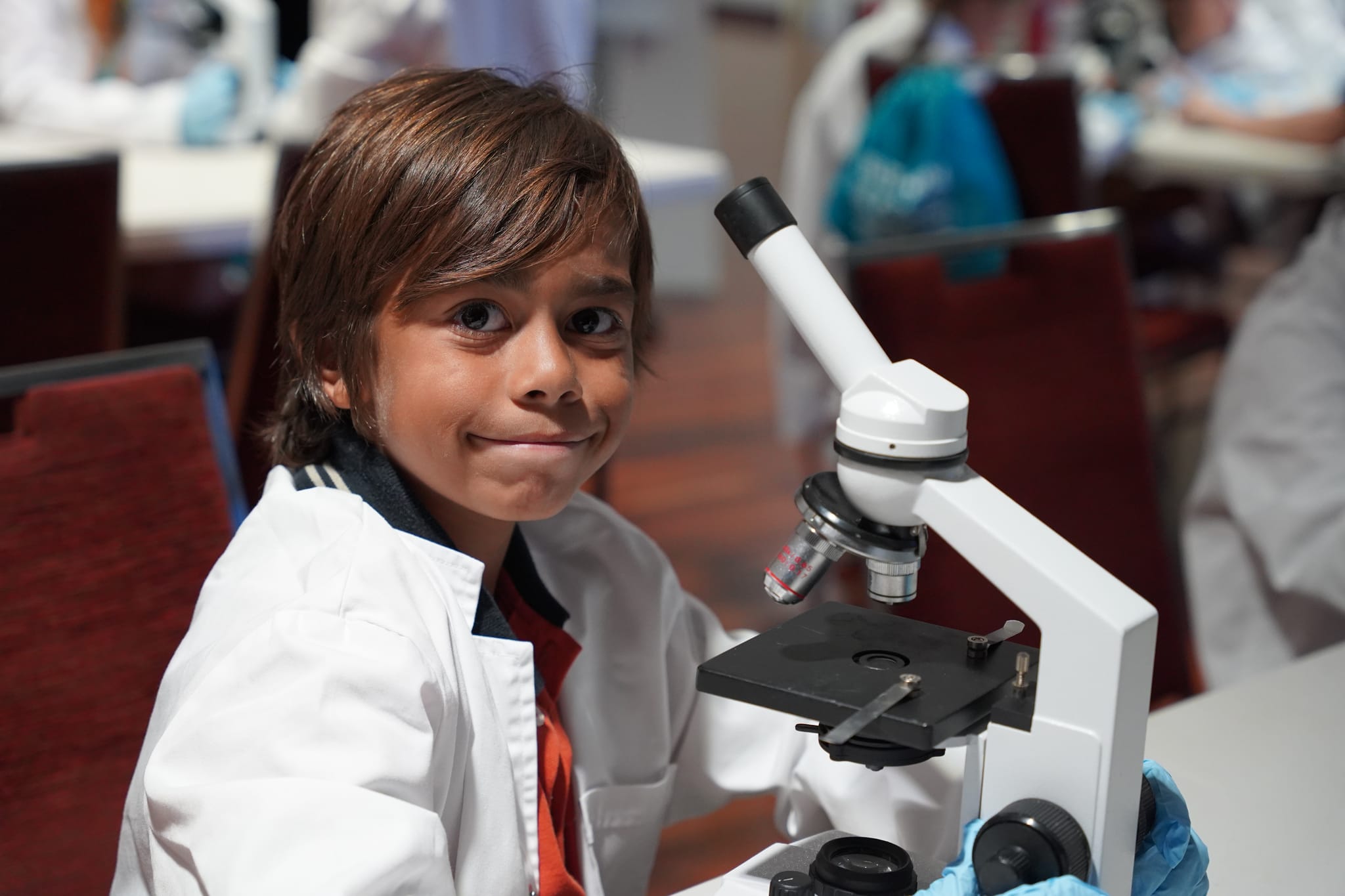
Today, 24 January 2025, is International Day of Education, a global celebration of the power of learning to transform lives.
This year’s theme, “AI and Education: Preserving Human Agency in an Automated World”, underscores the critical role of education in preparing young minds for a future increasingly shaped by Artificial Intelligence (AI).
Researchers at The Kids Research Institute Australia are using AI to accelerate research, personalise treatments and improve the lives of children in Australia and beyond. Our research utilises AI in several innovative ways:
Advancing AI in Health

A key leader in our AI initiatives is Dr. Timo Lassmann, the Head of our Precision Health Program. During his recent keynote speech at the Australian Bioinformatics and Computational Biology Society (ABACBS) conference Dr. Lassmann shared his vision for using smart AI to enhance healthcare for children around the world.
Dr. Lassmann has created a groundbreaking AI system for healthcare that provides precise predictions along with easy-to-understand explanations. The framework has two main distinguishing features:
- Easy-to-Understand Explanations: For every suggestion the AI makes, it clearly explains the reasoning, helping researchers and doctors make informed decisions.
- Multiple Effective Options: The AI offers various effective options, like specific biological markers, allowing for personalized treatments and tailored research methods.
The clear explanations let experts carefully review the results, while the multiple options help researchers find the best and most practical solutions using current lab and diagnostic tools.
Successfully commercialised and now available as a research service at The Kids Research Institute, this framework exemplifies Dr. Lassmann’s commitment to creating practical AI solutions that accelerate patient care and advance medical knowledge.
Beyond this foundational framework, Dr. Lassmann’s team is spearheading the development of AI-driven tools to hasten the diagnosis and discovery of treatments for rare diseases. By focusing AI applications on specific, key problems where they offer the most benefit, we can reliably tackle complex research questions with greater speed and accuracy.
One such tool is SampleExplorer (Chin & Lassmann, 2024), which uses advanced AI to quickly find important existing data. This tool enables researchers to place observations in a patient’s data within the context of prior knowledge, enabling researchers to better understand what is unique and could be causing the disease. This focused approach, along with other AI tools we are developing, strengthens our mission to bring hope to families affected by rare diseases.
Using AI to fight Antimicrobial Resistance (AMR)

Antimicrobial resistance (AMR) is turning once-curable bacterial infections into life-threatening conditions, with antibiotics losing their effectiveness at an alarming rate. By 2050, AMR is expected to claim over 10 million lives each year, a crisis the World Health Organization has named a top global priority.
At the Wal-yan Respiratory Research Centre, Dr. Yuliya Karpievitch is leading a groundbreaking effort to fight back against this silent killer. Using AI, her team is harnessing the power of phages—viruses that naturally hunt and destroy harmful bacteria. These microscopic warriors enter the body, multiply, and obliterate the bacteria that causes infection, leaving healthy cells untouched.
But time is critical when treating severely ill patients, and traditional methods of matching phages to infections can take days. For some, that delay could mean the difference between life and death.
Dr. Karpievitch’s AI-driven approach changes everything. By rapidly analysing thousands of phages, the system identifies the most effective match for a specific infection and hopes to cut the treatment process down from 4–5 days to less than 24 hours.
Learn more about Phage WA and Wal-yan’s fight against AMR here.
Improving disease identification and prediction

In July 2024, Clinical Epigenetics Team Lead Dr. David Martino, successfully developed an AI model to analyse medical research data.
Utilising ORIGINS’ cohort data, which consists of 10,000 children and their family’s responses to standardised medical surveys, Dr Martino’s team created a ‘data dictionary’ which tagged approximately 57,000 survey questions and answers which resulted in the recognition of roughly 3,500 disease concepts.
By identifying and standardising disease mentions within extremely large datasets using AI, Dr Martino and his team have been able to accelerate research within The Kids leading to faster more effective child health outcomes.
AI is a valuable tool, but it’s people who power our work. We strive for excellence through collaboration and global partnerships.
Inspiring the next generation of scientists
Our Schools Program provides a unique opportunity for students to connect with the wonders of scientific discovery through interactive workshops and hands-on experiments with medical researchers.
Find out more about the exciting opportunities on offer here.

